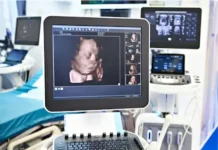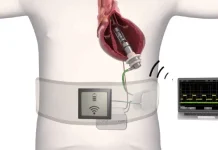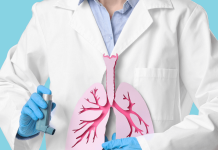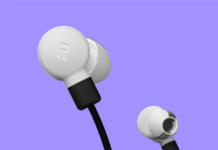Cardiawave has initiated a pivotal trial investigating its non-invasive ultrasound therapy, after its device demonstrated positive results in the treatment of calcific aortic stenosis in a first-in-human trial (FIH).
The results, published in The Lancet, are from first-in-human (FIH) trials, NCT04665596 and NCT03779620, which enrolled ten and 30 patients respectively.
Cardiawave stated that the prospective, multicentre, single-arm series met the primary endpoints of procedure-related mortality and the device’s ability to modify valve structure. The French medtech reported no procedure-related mortality, and a 10% increase in mean aortic valve area and quality-of-life improvements to confirm valve improvement.
Cardiawave added that The New York Heart Association (NYHA) score, a common way of assessing the extent of heart failure, improved, or stabilised in 96% of patients.
On top of results from the first-in-human studies, Cardiawave also announced it has initiated a pivotal study with its device in patients who refuse or are not able to undergo valve replacement for the treatment of severe symptomatic aortic valve stenosis.
In July 2023, it completed a 60-patient enrollment for the study across 11 clinical sites in France, Germany, and the Netherlands.
Cardiawave is preparing a Series B financing round to help both prepare for marketing in Europe and assemble the framework for clinical studies in the US ahead of a pre-market approval application to the Food and Drug Administration (FDA).
According to GlobalData’s deals database, Cardiawave has raised a total of $18.8m in venture financing.
The company’s technology uses non-invasive transthoracic ultrasound technology to deliver shockwaves on the aortic valve. The waves soften the tissue, restore leaflet mobility, and enable a wider opening of the valve.
In 2021, the US Food and Drug Administration (FDA) stated it was receiving an increasing number of therapeutic ultrasound device submissions. Applications for the cardiovascular system, brain, pain management, and immunotherapy were highlighted by the agency.
Cardiawave scientific advisory board member Professor Roxana Mehran said: “Results from this FIH series with a cohort of very frail patients suggest that the use of non-invasive ultrasound therapy is feasible and safe, and efficient with statistically significant improvements of hemodynamic and clinical parameters in high-risk patients with calcific aortic stenosis.”






